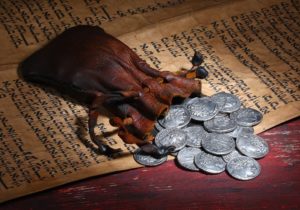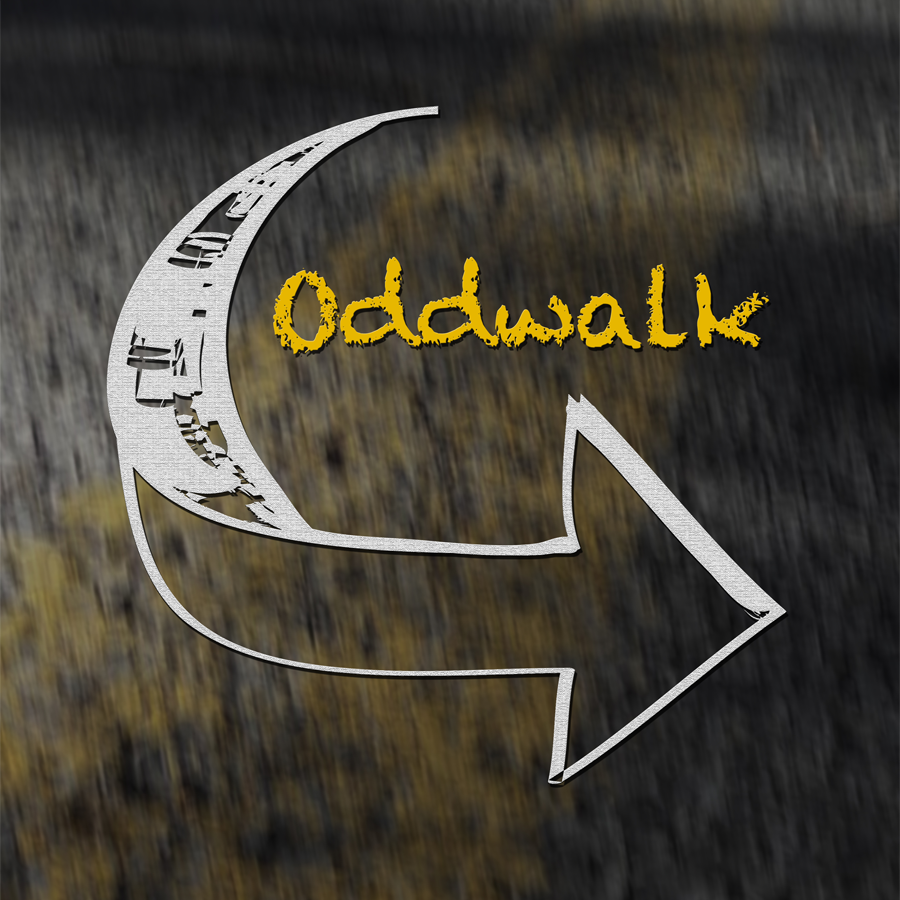On a TEC retreat Erin and I attended a few years back, a speaker giving a meditation shared with us a pretty amazing reflection activity, based on a passage from 1 Corinthians 13. You’ve all heard this passage dozens of times, probably at weddings, mostly: Love is patient, love is kind. It is not jealous,…
Category: bible
bible, catholicism, Jesus, JesusJusticeJoy, prayer, reflection
Do Not Be Afraid
Tomorrow is election day; I hope most or all of our readers didn’t need that reminder. While we don’t want to wade too publicly, as Oddwalk, into the political fray, one thought just today crossed Orin’s mind that is worth considering before stepping into the voting booth. One tactic that has come up frequently in…
bible, JesusJusticeJoy, Justice, reflection
Being Neighborly
This weekend at Mass, our pastor gave a good homily. At least, I think it was good. I might have lost focus. At some point in the homily, Fr. Joseph made a reference to the Parable of the Good Samaritan. In particular, his recounting of how both the priest and the Levite in that story…
announcements, bible, catholicism, family, Jesus, JesusJusticeJoy, Judaism, liturgy, ministry, music, oddwalkia, prayer, reflection, saints, scripture, shrine
Guard Your Lions
Apologies for the unannounced four week hiatus from our Jesus-Justice-Joy posts here at the Oddwalk central. On the other hand, no one has been banging on our houses’ front doors demanding their return— Yet, today they do return.
But first, a brief word of explanation. Shortly after our most recent post of September 11, significant events occurred in the lives of Orin and Shannon. Orin’s dad, Orville “Doc” Johnson, passed away on September 17 – more on that in a moment. On the Cerneka side of things, Shannon’s wife Erin lost her job at very nearly the same time. On top of and in-between those occurrences have been other things, like a couple Oddwalk engagements, and, of course, all the personal and professional things that some call “real life.” While generally speaking all are doing “okay,” to pick a most vague and not-especially-descriptive term, please do keep us in prayer.
Last Friday night, in St. Louis, some local to STL friends and family of Orin gathered in a service of remembrance for his parents, Orville and Eva (Eva died in 2008). For this week’s return to JJJ posts, we share here the Gospel passage read at that service and Orin’s preaching on it.

Orville and Eva, at Orin & Erin’s Wedding in 2004
Luke 12:35-40
Jesus told his disciples: “Gird your loins and light your lamps and be like servants who await their master’s return from a wedding, ready to open immediately when he comes and knocks: Blessed are those servants whom the master finds vigilant on his arrival. Amen, I say to you, he will gird himself, have them recline at table, and proceed to wait on them. And should he come in the second or third watch and find them prepared in this way, blessed are those servants. Be sure of this: if the master of the house had known the hour when the thief was coming, he would not have let his house be broken into. You also must be prepared, for at an hour you do not expect, the Son of Man will come.”
bible, catholicism, JesusJusticeJoy, Joy, reflection, scripture
Believe in the One He Sent
Written for the Any Given Sunday Project, this reflection focuses on the Mass readings for this coming Sunday, August 5. We are using it as our Jesus Justice Joy post for this week. If you are a regular reader and are expecting an article on “joy”, please know that while this reflection wasn’t written with…
bible, JesusJusticeJoy, Justice, reflection, saints, Welcome
I’m Coming, Lord
Our family has been in our current house now for just over three years. The day we moved in was exciting, but exhausting. So, when our heads hit the pillow that night, we were out cold. You can imagine our alarm, then, when our doorbell rang in the middle of the night. Bleary-eyed, I answered…
bible, catholicism, JesusJusticeJoy, Joy, lent, liturgy, ministry, music, prayer, reflection, scripture
Answer Me
 Each year, at the parish where I (Orin) direct music, the school children attend Mass on what is nicknamed “Spy Wednesday,” Wednesday of Holy Week, because of how Judas and his role in the passion is featured in the Gospel passage of the day. It is in fact the last Mass before the Thursday liturgies of Triduum: Chrism Mass and/or the Mass of the Lord’s Supper.
Each year, at the parish where I (Orin) direct music, the school children attend Mass on what is nicknamed “Spy Wednesday,” Wednesday of Holy Week, because of how Judas and his role in the passion is featured in the Gospel passage of the day. It is in fact the last Mass before the Thursday liturgies of Triduum: Chrism Mass and/or the Mass of the Lord’s Supper.
I think, though, that more than the other readings of the day, and more than other psalms, the psalm of the day, part of Psalm 69, is one of my favorites. Here it is, in it’s entirety, as the responsorial psalm from Wednesday’s mass:
R. (14c) Lord, in your great love, answer me.
For your sake I bear insult,
and shame covers my face.
I have become an outcast to my brothers,
a stranger to my mother’s sons,
because zeal for your house consumes me,
and the insults of those who blaspheme you fall upon me.R. Lord, in your great love, answer me.
Insult has broken my heart, and I am weak,
I looked for sympathy, but there was none;
for consolers, not one could I find.
Rather they put gall in my food,
and in my thirst they gave me vinegar to drink.R. Lord, in your great love, answer me.
I will praise the name of God in song,
and I will glorify him with thanksgiving:
“See, you lowly ones, and be glad;
you who seek God, may your hearts revive!
For the LORD hears the poor,
and his own who are in bonds he spurns not.”R. Lord, in your great love, answer me.
I think what appeals to me about this psalm are two separate yet connected ideas: Our faith as a journey, and prayers of lament.
I think, sometimes, our faith experience as we live it today has lost a sense of lament: a profound expression of sadness and grief. Surely there is some of that sometimes, particularly when dealing with a death of a friend or relative. But, anecdotally, in other instances when one might turn to lament, what I see instead are things like anger, revenge, or simply “fixing” the cause of the lament in convenient but perhaps not the most meaningful of ways. What does that mean? It means instead of turning our sorrow to God, we attempt to alleviate it on our own: by expressing other emotions, by taking actions that are typically sinful and hurtful to others and ourselves, or by engaging in more of a culture which oftentimes seeks instant gratification. (In some ways, we’ve lost definitions and distinctions in and around words and feelings like “love,” “need,” “want,” “desire,” and so on, but that’s probably material for another post someday.)
Lament, even anger at God, is an okay place to be and an okay way to pray. God expects nothing less from our human experiences. God lived those emotions as Jesus Christ, fully God and fully human. Go to God with sorrow, lament, and even anger. Let God speak to you about those things. Let God soothe and console, and even fill the empty places in your heart.
The Psalms of lament, which include Psalm 69 above, always have a moment where the voice of the psalm turns the corner. Note the last verse, which has jumped ahead in the psalm a fair amount: I will praise the name of God… the Lord hears the poor…” God hears us, and our lament, through God, can become joy. God is in the lament, knows the lament, and always wants for us, ultimately, joy. It is up to us, though, in those times, to remember God is with us, and turn to God with our needs.
May Holy Week blessings be with one and all. Orin
announcements, bible, catholicism, JesusJusticeJoy, Justice, ministry
Justice for Dreamers
Today’s Jesus-Justice-Joy post is brief but important. The United States Bishops ask us to be a part of a call-in campaign today. See the graphic below for more information and exact steps on what to do.
There are so many other items in the news that these people who too need our help might be forgotten. Please take a moment to respond to our Bishop’s call for justice today. Thanks.
You have been told, O mortal, what is good, and what the LORD requires of you:
Only to do justice and to love goodness, and to walk humbly with your God.Micah 6:8

